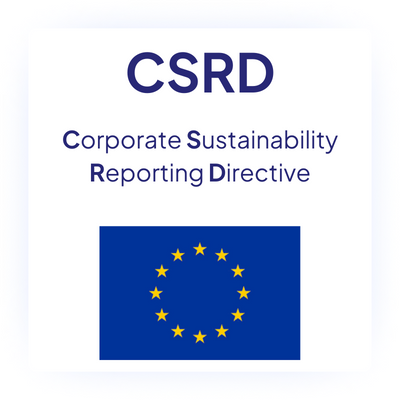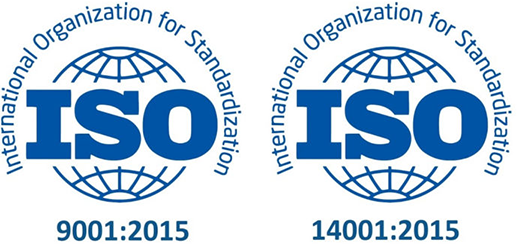Todo lo que engloba al concepto de sostenibilidad viene pisando fuerte, y las empresas deben hacer frente a la creciente demanda de ser transparentes en sus prácticas y desempeño ambiental y social. En este contexto, la CSRD, o Directiva sobre información corporativa en materia de sostenibilidad, surge como un instrumento fundamental para impulsar la responsabilidad y transparencia de las empresas en la Unión Europea (UE).
En este artículo hablaremos sobre qué es la CSRD, sus objetivos, requisitos y cómo esta directiva se relaciona con la consultoría de sostenibilidad, destacando el papel vital de empresas como Ecoterrae en este ámbito.
La CSRD, o Directiva sobre información corporativa en materia de sostenibilidad, es una iniciativa legislativa de la UE que busca aumentar la transparencia y coherencia en la divulgación de información no financiera por parte de las empresas.
Esta directiva impulsa la integración de criterios ESG en informes corporativos, reconociendo la sostenibilidad como esencial en la gestión empresarial responsable.
Objetivos
La CSRD tiene varios objetivos clave que reflejan la urgencia de abordar los desafíos ambientales y sociales en el contexto empresarial:
- Fomentar una mayor transparencia en la divulgación de información no financiera.
- Mejorar la coherencia y comparabilidad de los informes de sostenibilidad entre empresas.
- Integrar los riesgos ambientales, sociales y de gobernanza (ESG) en la toma de decisiones empresariales.
- Facilitar la participación de los interesados, como inversores, empleados y la sociedad en general, en la evaluación del desempeño sostenible de las empresas.
Requisitos
La CSRD establece requisitos específicos para las empresas que superan ciertos umbrales, en términos de tamaño y número de empleados, y operan en la UE. Algunos de los elementos clave de los requisitos incluyen:
- Informe Ampliado:
- Empresas afectadas deben informar sobre aspectos ESG, abarcando temas ambientales, sociales, laborales, derechos humanos, anticorrupción, diversidad en consejos de administración.
- Auditoría Externa:
- La información divulgada en el informe debe ser objeto de una auditoría externa, aumentando la confiabilidad y credibilidad de los datos presentados.
- Desglose por Países:
- Se requiere un desglose por países, proporcionando detalles sobre la actividad empresarial y la información no financiera en cada jurisdicción.
- Información Prospectiva:
- La directiva insta a las empresas a incluir información prospectiva, proporcionando una visión a largo plazo de cómo planean abordar los desafíos sostenibles.
CSRD y la Consultoría de Sostenibilidad
En este nuevo marco normativo, las empresas requieren un enfoque estratégico para cumplir con la CSRD y aprovechar las oportunidades que brinda la sostenibilidad.
Para ello, deben contar con el apoyo de una consultoría de sostenibilidad, la cual, se presenta como un socio estratégico esencial para las empresas que buscan cumplir con la CSRD de manera efectiva.
- Proporcionan asesoramiento estratégico para la transición a informes sostenibles, guiando a empresas en mejoras y objetivos alineados con la CSRD
- Colaboran en el desarrollo de informes sostenibles, asegurando que la información presentada cumpla con los requisitos de la CSRD y se alinee con los principios ESG.
- Servicios de auditoría de sostenibilidad externa, proporcionando una evaluación objetiva y confiable de los datos presentados en los informes.
- Integración de prácticas ambientales y sociales en las operaciones diarias de las empresas, fortaleciendo su posición en el mercado y cumpliendo requisitos regulatorios.
- Apoyo a las empresas con programas de capacitación para empleados y directivos, aumentando la conciencia sobre la sostenibilidad y la CSRD en toda la organización.
- Colabora en la identificación de oportunidades comerciales y de reputación asociadas con la implementación efectiva de prácticas sostenibles.
La importancia de la CSRD
La CSRD representa un cambio significativo en la forma en que las empresas informan sobre su desempeño sostenible, y nuestra consultora de sostenibilidad Ecoterrae se encuentra en una posición única para guiar a las empresas en este viaje.
A través de un enfoque integral, la consultora no solo ayuda a cumplir con los requisitos regulatorios, sino que también impulsa la creación de valor a largo plazo a través de prácticas sostenibles y transparentes.
En última instancia, la CSRD y la consultoría de sostenibilidad están convergiendo para transformar la forma en que las empresas operan, priorizando la sostenibilidad y la responsabilidad como pilares fundamentales de su éxito futuro.
NFRD vs CSRD ¿Qué diferencias implican para el reporting?
La nueva Directiva CSRD representa una revisión de la Directiva sobre divulgación de información no financiera (NFRD), abordando algunas deficiencias identificadas en el informe de información no financiera y, por ende, ampliando significativamente el alcance de la NFRD.
Esta actualización sugiere la importancia creciente de esta información al dejar de denominarse simplemente «no financiera» para abarcar aspectos de sostenibilidad que pueden tener un impacto financiero.
¿Cuáles son las principales diferencias en términos de informes? A simple vista, la complejidad y el rigor de los requisitos establecidos por la CSRD aumentan considerablemente en comparación con la NFRD.
La cantidad de información a reportar es mayor, al igual que el nivel de detalle en áreas como aspectos sociales o comunidades afectadas, entre otros.
Además, la CSRD emplea un doble proceso de materialidad para identificar tanto los riesgos y oportunidades ESG (ambientales, sociales y de gobernanza) del negocio como el impacto de las organizaciones en la sociedad y el medio ambiente (doble materialidad).
Por otro lado, se introduce inicialmente un nivel de aseguramiento limitado sobre la información reportada, un aspecto que no era requerido anteriormente bajo la NFRD.





